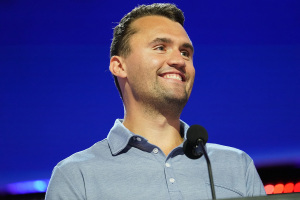Filling the Christian Generation Gap
Paul Fleischmann, Chair of the World Evangelical Alliance Youth Commission, says integrating youth into leadership positions is the key to the future.
Statistics show that more than 50 percent of the world’s people are under the age of 25, and most of them are living in the global South. At the same time, less than 30 percent of the 200-plus World Evangelical Alliance chapters have specially designated youth divisions, and younger leaders are leaving the church at a growing rate.
According to Paul Fleischmann, Chair of the WEA's Youth Commission, these figures reveal that Evangelicals have much work to do in this rapidly changing world.
“The fact is, the church is changing globally and the churches that are thriving are in the Southern Hemisphere where most of the population is young,” said Fleischmann, who also leads the San Diego, Calif.-based National Network of Youth Ministries. “If we’re concerned about reaching the world for Christ, we’ve got to take these statistics into serious consideration.”
This is why Fleischmann says churches must now “incorporate young people into leadership.”
“There are still many global gatherings that challenge the church to reach the world but forget to include young people in the effort to reach the youth,” he explained. “We need to recognize that unless youth are involved now, they may not be there when the church needs them as leaders.”
This phenomenon of youth leaving the church, ministry and the faith has often been cited as one of the top five critical issues facing Christianity today. And in recent years, many churches have responded with spirited initiatives and campaigns aimed at keeping kids in the pews.
The Southern Baptist Convention is a case in point. Beginning last summer, the denomination launched a series of “younger leader” conferences - their definition of “young” is anyone under 40 – that culminated with a huge gathering in Nashville, Tenn., this year. During the same time frame, the denomination elected four of those “younger leaders” to serve as the church's trustees as part of a genuine gesture to invite more youth into the conversation.
However, Christian youth analysts are saying those efforts are not enough.
“I think it seems every church wants to reach the millennium generation, and are saying they need the kids. But they want the kids to be 45-year-olds.” said Spencer Burke, author of the book, Making Sense of Church, and head of an online youth ministry called The OOZE. “If you need them, ask them what they want.”
Burke says the parent’s generation must not only make room for the new kids on the block -- they need to let the youth “do church” their own way.
“They need to remember that when they were younger, their parents’ generation gave them a chance to move their praise band to the front of the church,” said Burke. “It’s the same thing now. Maybe it’s time to worship from a turn-table and give sermons through an IPOD. Who knows?”
That’s why Burke believes the church needs to approach the youth as a “fellow traveler” rather than as a group that follows a “tour guide leader.”
“I think in the past we thought of leadership as having all the right answers, knowing exactly where we were going,” he said. “But the leadership is changing and the youth is responding to a type of leadership that’s more like a fellow traveler.”
Fleischmann agrees that young people must be integrated into the church as a fellow group with its own culture – not as a mere subgroup of a larger demographic cohort.
“We’ve often looked as youth as part of family and not as a separate entity,” he said. “But over the last 20 years or so, the MTV generation has given a different feel to the youth culture and showed us there is a definite youth culture around the world.”
One of Fleischmann's main roles in the World Evangelical Alliance is to help set up special youth ministries in each nation that needs it.
“We want to help the church have a vision to do special ministry to the youth, to reach every young person, and to disciple them. But each nation has different needs, and we don’t pretend to know what those needs are,” he said. “We, the Youth Commission, are just trying to connect the nations to help them accomplish their goals.”
Exact figures show there are 223 chapters of the World Evangelical Alliance in the world, but only 60 with youth commissions. Therefore, one of Fleischmann’s foremost goals as Chair of the Youth Commission is to expand his ministry’s reach across the 200-plus WEA chapters.
This November, Fleishmann will be traveling to India as part of that plan. The trip, which he calls “one of the most historic," will challenge the top 20 international leaders from the Commission to find out how they can expand their reach.
“Our big job is to establish as many of those youth commissions as there are evangelical alliances,” he said. “We want to set up leadership so every single young person in the world can be reached.”



























